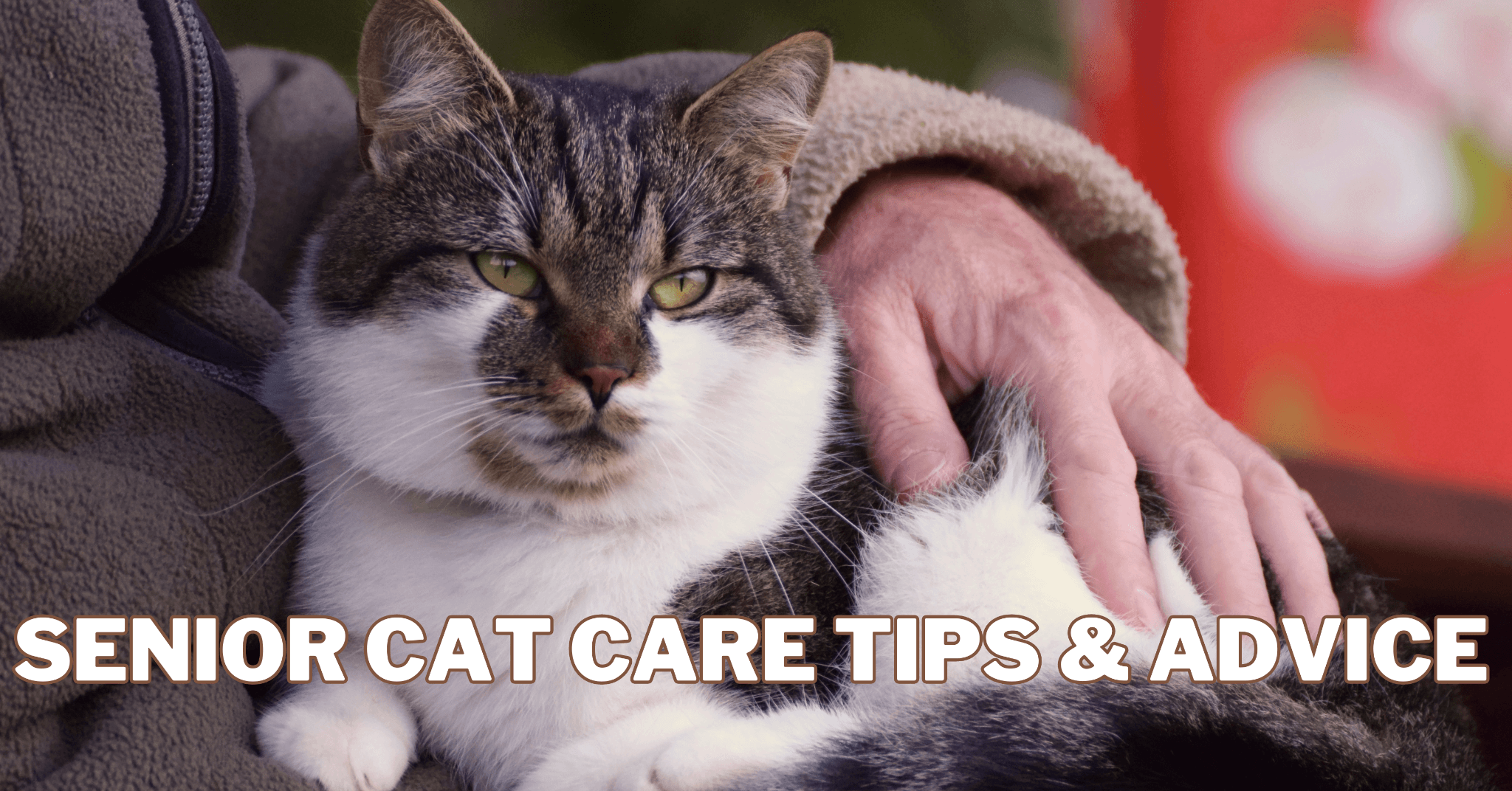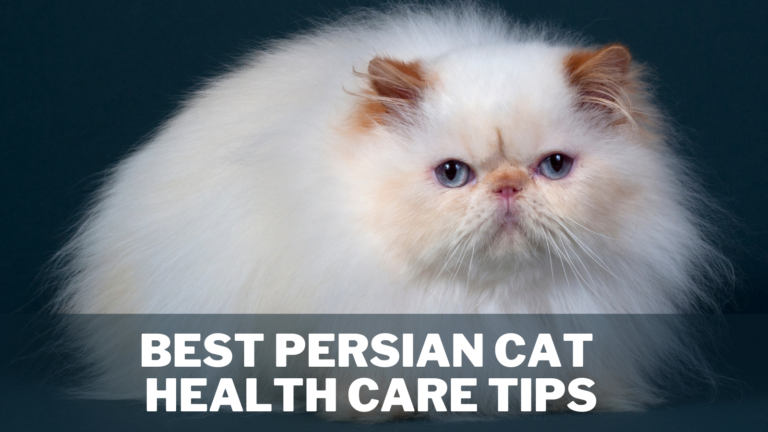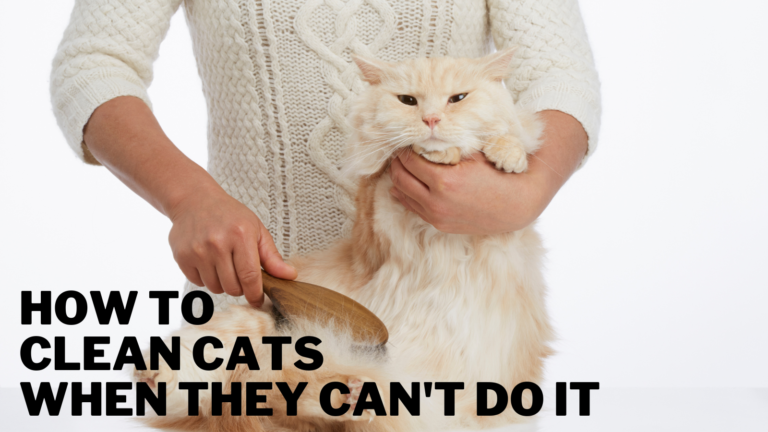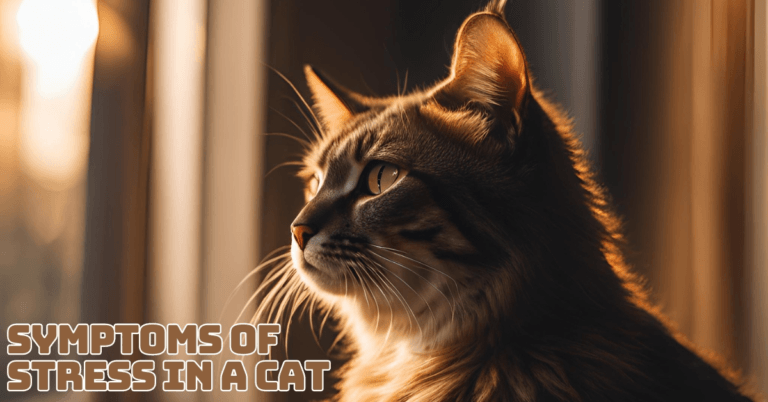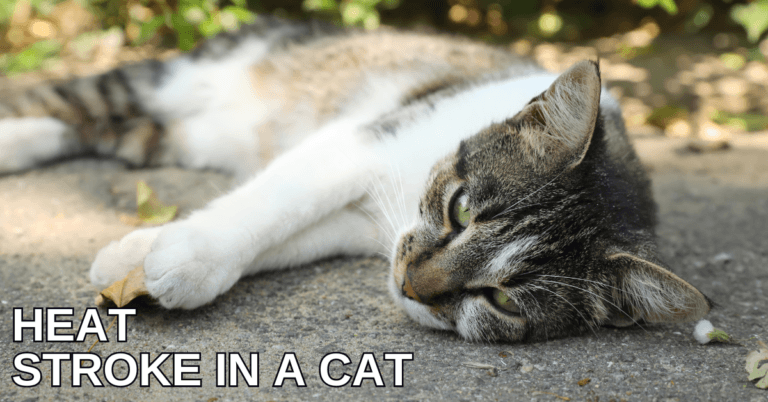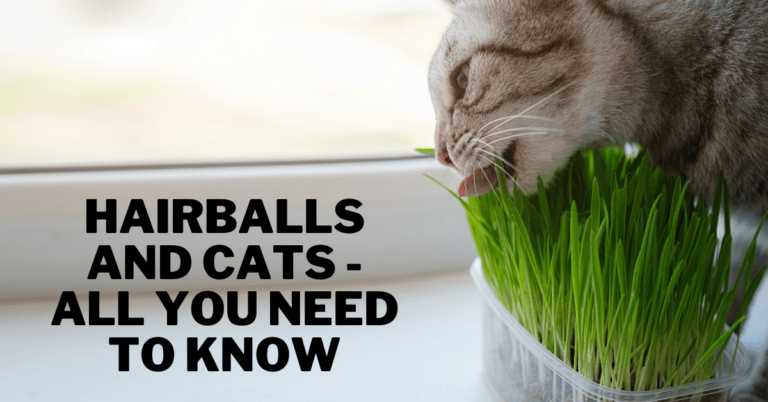Best Senior Cat Care Tips And Advice
Best Senior Cat Care Tips And Advice
As our feline friends age, they require special care and attention to ensure their well-being and comfort in their golden years.
Like humans, senior cats may experience various age-related changes and health challenges that require specific caregivers' consideration.
From proper nutrition and regular veterinary check-ups to providing a senior-friendly environment, senior cat care is paramount for any cat owner.
This article will delve into the various aspects of senior cat care, offering valuable insights and practical tips to help you provide the best care for your beloved senior feline companion.
By understanding their unique needs and addressing age-related issues with compassion, you can ensure that your senior cat enjoys a happy, healthy, and fulfilling life in their twilight years.
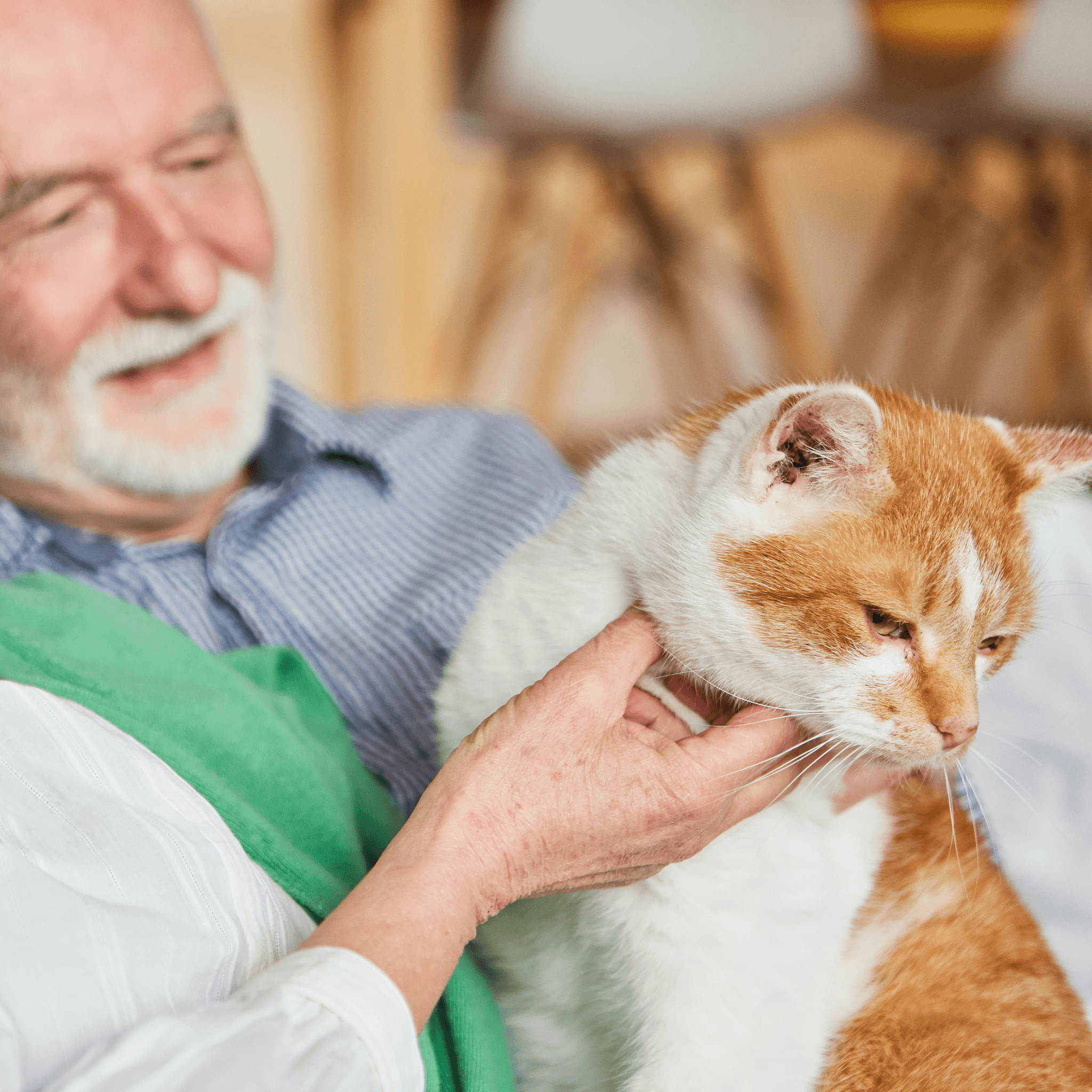
Understanding Senior Cats
As cats age, they go through various life stages that change their physical and behavioural needs.
A senior cat is generally considered to be around seven years or older, depending on the breed and individual health.
While some cats may start showing signs of aging earlier, others may remain spry and active well into their golden years.
Understanding the definition of a senior cat is crucial because it allows us to adapt their care accordingly.
As cats age, they may experience certain challenges, such as reduced mobility, changes in appetite, dental issues, and a higher risk of developing age-related health conditions like arthritis, kidney disease, and diabetes.
Senior cats may also become more prone to weight gain or loss, and their energy levels might decrease.
Behavioural changes can also be observed in senior cats, such as increased vocalization or altered sleep patterns.
Proper senior cat care involves the following:
- Tailoring their diet to suit their changing nutritional requirements
- Maintaining regular veterinary check-ups to catch potential health issues early
- Providing a comfortable and safe environment
- Offering mental and physical stimulation to keep them engaged and active
By understanding senior cats' unique needs and challenges, cat owners can ensure that their feline companions enjoy a happy, healthy, and fulfilling life in their later years.
Senior Cat Care Tips
As the years go by, our feline friends gracefully enter their golden years, and it's a time that demands extra care and attention.
Just like we cherish the memories we've created with our senior cats, adapting their care to ensure comfort and happiness in their later stages of life is crucial.
While senior cats may experience age-related changes, they still have so much love to give and are worthy of all the care they can get. Here are some key tips to consider:
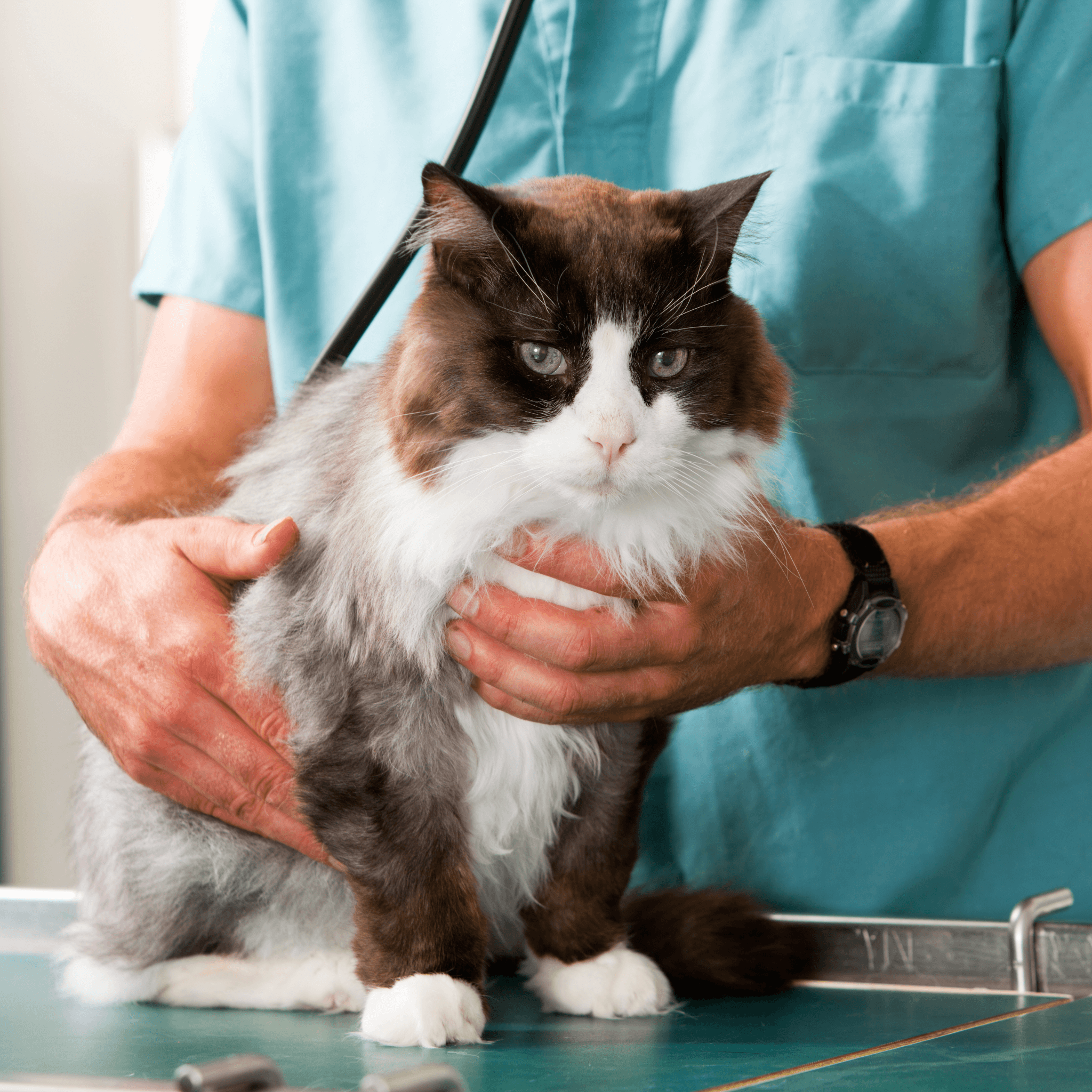
1. Regular Veterinary Check-Ups
As your cat enters its senior years, it becomes increasingly important to prioritize its health and well-being.
Regular veterinary check-ups are crucial during this stage of life as they allow early detection and management of age-related health issues.
Your veterinarian will perform a comprehensive examination, including blood tests, to assess your senior cat's overall health, kidney and liver function, and thyroid levels.
They will also check for common senior cat ailments such as arthritis, dental problems, and changes in vision or hearing. Vaccinations and preventive treatments for parasites should also be kept up to date.
Through these routine visits, your veterinarian can recommend appropriate dietary adjustments, supplements, or medications that cater to your senior cat's needs.
By staying vigilant with regular check-ups, you can provide your senior cat with the best possible care and ensure they enjoy their golden years in comfort and good health.
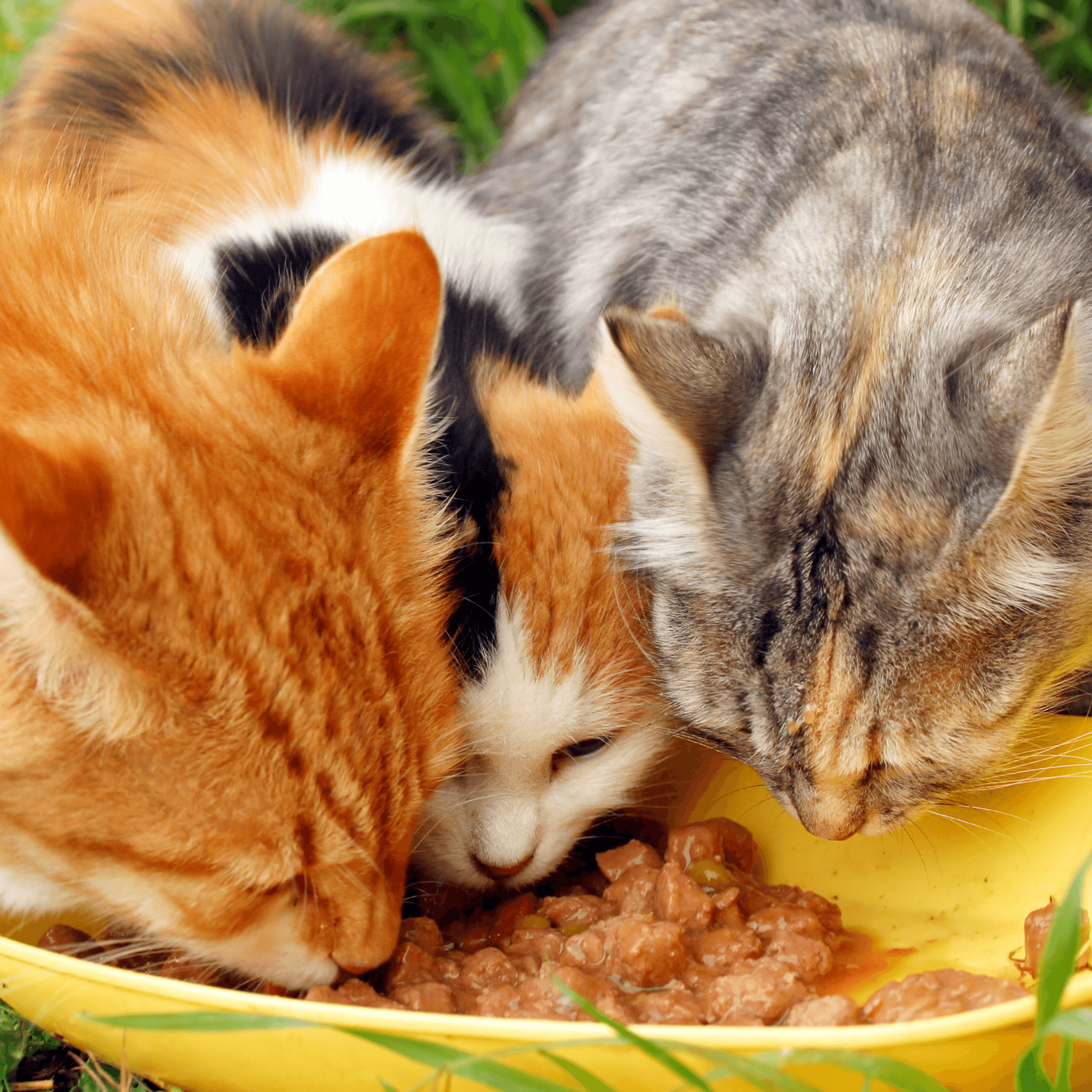
2. Proper Nutrition
Proper nutrition plays a vital role in ensuring the health and vitality of senior cats. As cats age, their metabolism slows, and their activity levels may decrease, making them more prone to weight gain.
Selecting high-quality senior cat food specifically formulated for their age is essential. Senior cat food typically contains a balanced mix of proteins, fats, and carbohydrates and added nutrients like antioxidants, vitamins, and minerals to support aging bodies and strengthen the immune system.
Additionally, senior cat food usually incorporates joint-supporting ingredients to alleviate stiffness and discomfort in arthritic cats.
Since older cats may have dental issues or difficulty chewing, choosing wet or moist cat food can be beneficial as it is easier to eat and digest.
Always consult your veterinarian to determine the best nutritional plan for your senior cat based on their health requirements.
Avoid feeding your senior cat excessive treats, table scraps, or diets not specifically designed for their age, as these can lead to weight gain and nutrient imbalances.
Providing your senior cat with the appropriate nutrition will contribute to their overall well-being and improve their quality of life in their golden years.
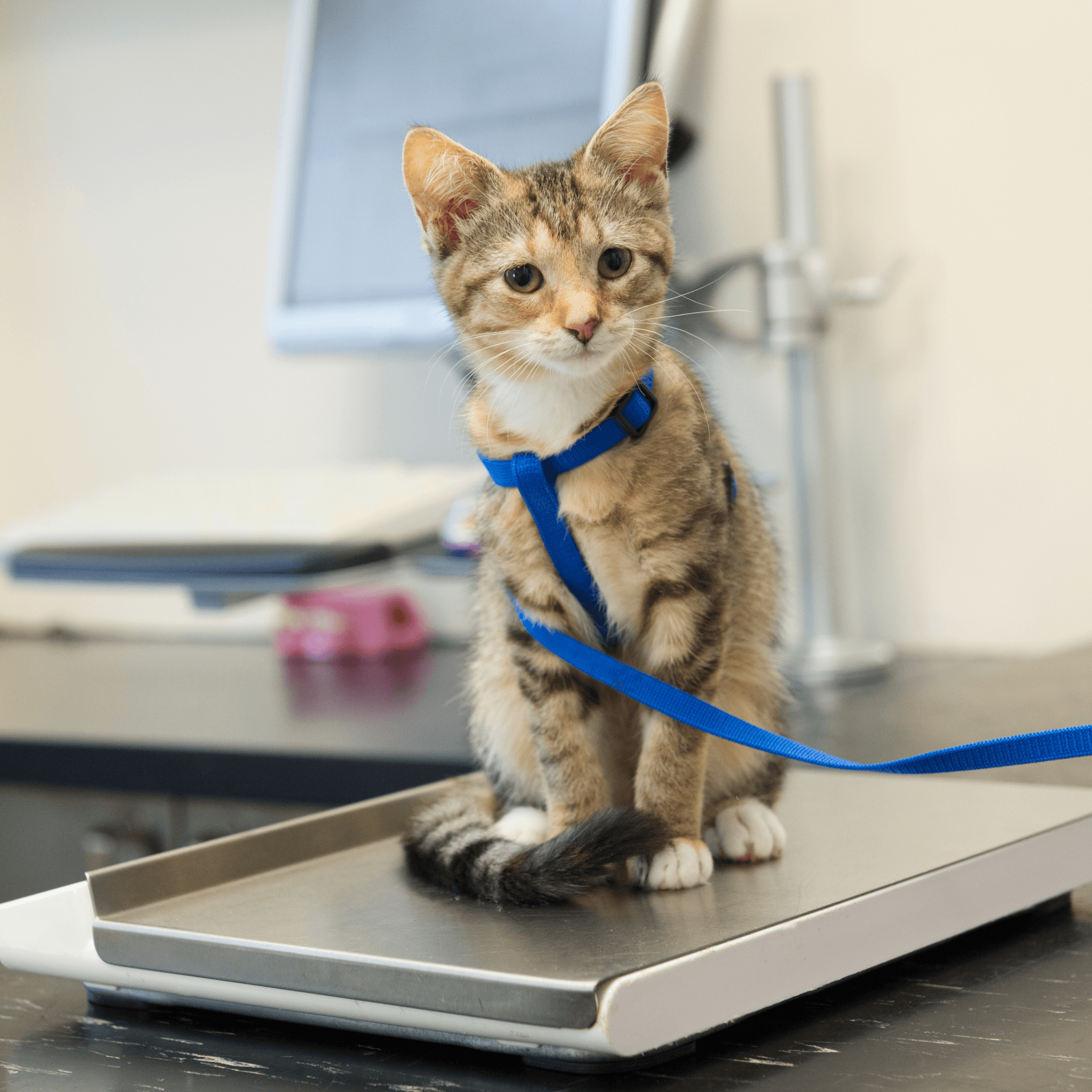
3. Weight Management
Weight management is crucial for senior cats' overall health and well-being. Obesity can worsen existing health conditions such as arthritis, diabetes, and heart problems and put extra strain on their aging bodies.
Regularly monitor your cat's weight and body condition score, and consult with your veterinarian to determine the ideal weight range for your senior feline friend.
Work with your vet to create a gradual and appropriate weight loss plan if your cat is overweight.
This may involve adjusting their diet to a portion-controlled, low-calorie senior cat food, encouraging increased physical activity through interactive play, and providing vertical spaces for exercise.
On the other hand, if your senior cat is underweight, it's important to rule out any underlying health issues contributing to the problem.
Your veterinarian can thoroughly examine and perform necessary tests to identify health concerns.
Depending on the diagnosis, your vet may recommend a specialized diet that provides additional calories and nutrients to help your cat regain weight. Avoiding rapid weight changes is essential, as sudden weight loss or gain can harm senior cats.
Remember that weight management for senior cats should be done under the guidance of a veterinarian, as each cat's nutritional needs are unique.
Regular veterinary check-ups will help ensure your senior cat maintains a healthy weight and receives appropriate care to support their overall health during their golden years.
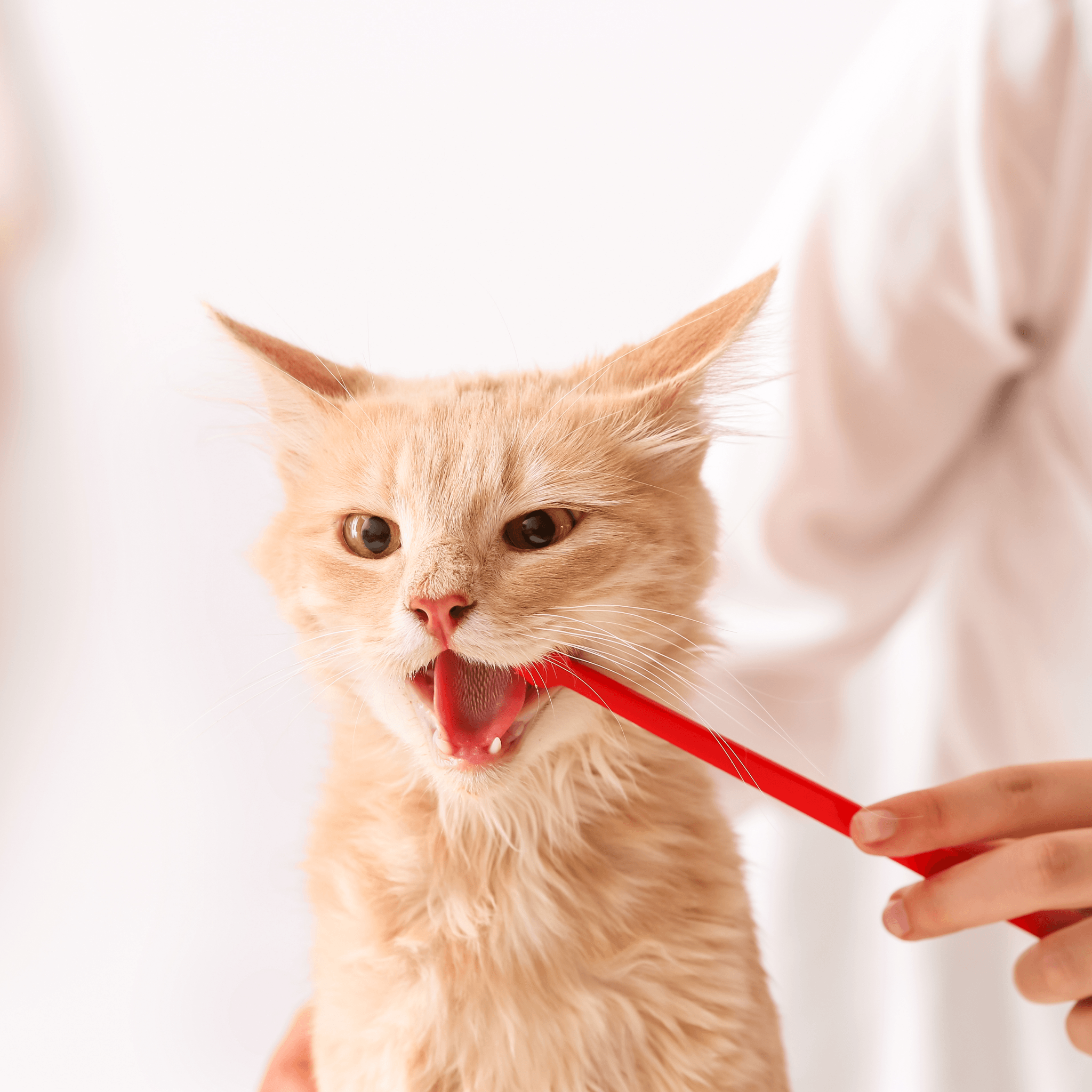
4. Dental Care
Dental care is a critical aspect of senior cat health. As cats age, dental problems like periodontal disease and tooth decay become more prevalent, leading to discomfort and potential complications.
Regular dental care can significantly improve their quality of life. Introduce dental hygiene early to get your senior cat accustomed to teeth brushing.
Use a soft-bristled toothbrush and cat-friendly toothpaste to brush their teeth gently. Aim to brush their teeth a few times weekly, removing plaque and tartar buildup.
Dental treats and toys for oral health can also help reduce plaque and tartar formation. These treats and toys promote chewing and aid in keeping their teeth clean.
Schedule regular dental check-ups with your veterinarian, ideally every six to twelve months, to assess your cat's dental health and address any emerging issues promptly.
Your vet can perform a comprehensive dental examination, including X-rays, to detect dental problems that may not be visible on the surface.
If your senior cat requires professional dental cleaning, your veterinarian can perform the procedure safely under anesthesia.
Maintaining good dental health in senior cats can prevent pain, improve eating habits, and reduce the risk of more severe health issues associated with untreated dental problems.
By prioritizing dental care as part of their overall health routine, you can help your senior cat enjoy a healthier and more comfortable life as they age.
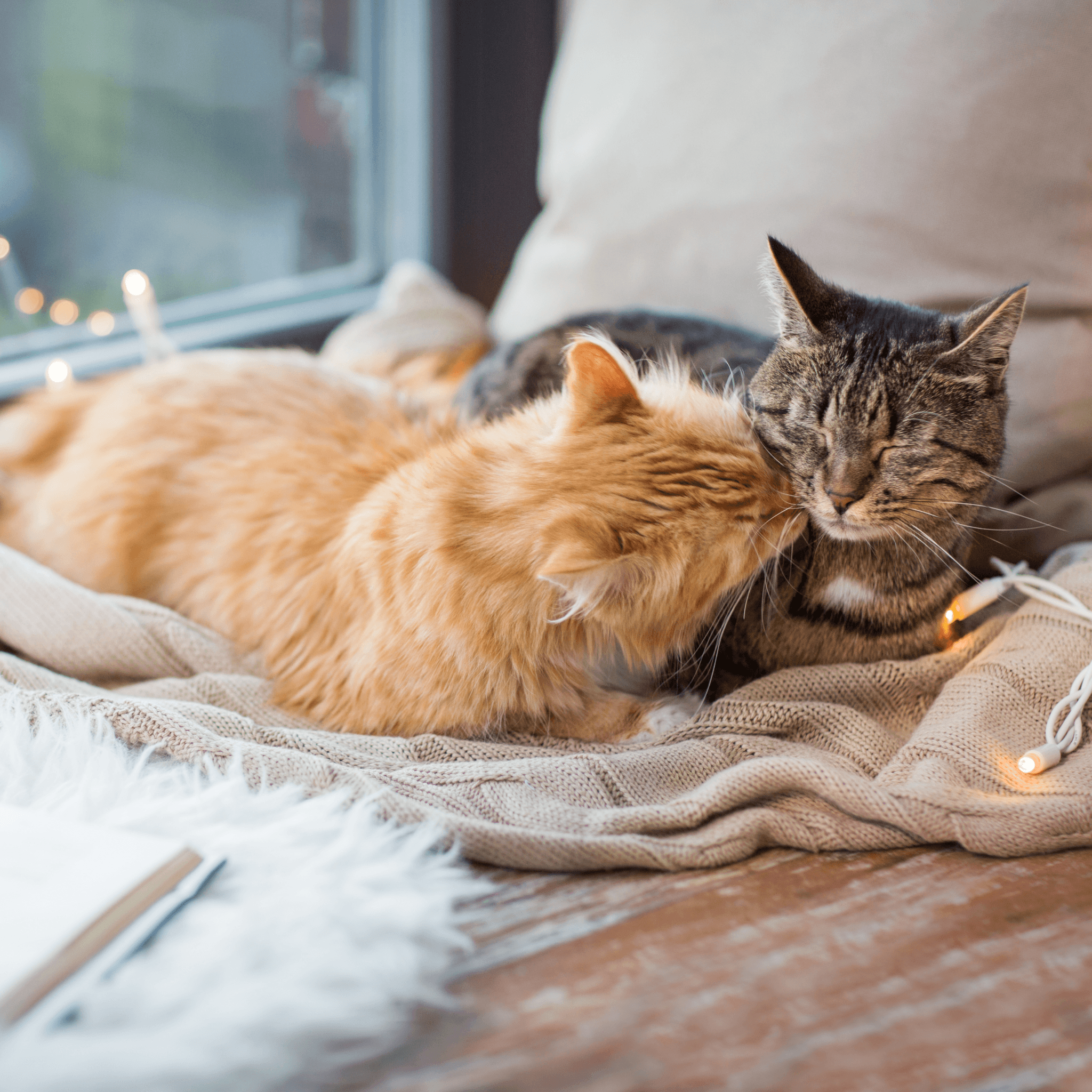
5. Comfortable Environment
Creating a comfortable environment is crucial for the well-being of senior cats. As they age, they may develop mobility issues or arthritis, making it essential to design their living space with their needs in mind.
Provide soft and supportive bedding in warm and quiet areas to ensure they have a cozy spot to rest and sleep.
Place their food and water dishes in easily accessible locations, avoiding the need to climb or jump to reach them.
Consider using elevated or raised feeding stations to reduce strain on their neck and joints while eating.
To cater to their reduced mobility, add ramps or steps to help your senior cat reach higher areas, such as beds or couches, which they may have difficulty accessing independently.
Ensure the litter box is easily accessible, with low sides for easy entry. Position the litter box in a quiet and private location to ensure their comfort during elimination.
Senior cats may also benefit from a calming and stress-free environment. Provide hiding spots or cozy corners where they can retreat and feel secure.
Minimize loud noises and sudden changes to reduce stress levels. Ensuring a peaceful and predictable living environment can help senior cats feel at ease.
Lastly, pay attention to temperature control. Older cats can be more sensitive to extreme temperatures, so keep their environment warm in colder months and ensure proper ventilation during warmer months.
By creating a comfortable and safe environment tailored to the specific needs of your senior cat, you can help them navigate their golden years with comfort and contentment.
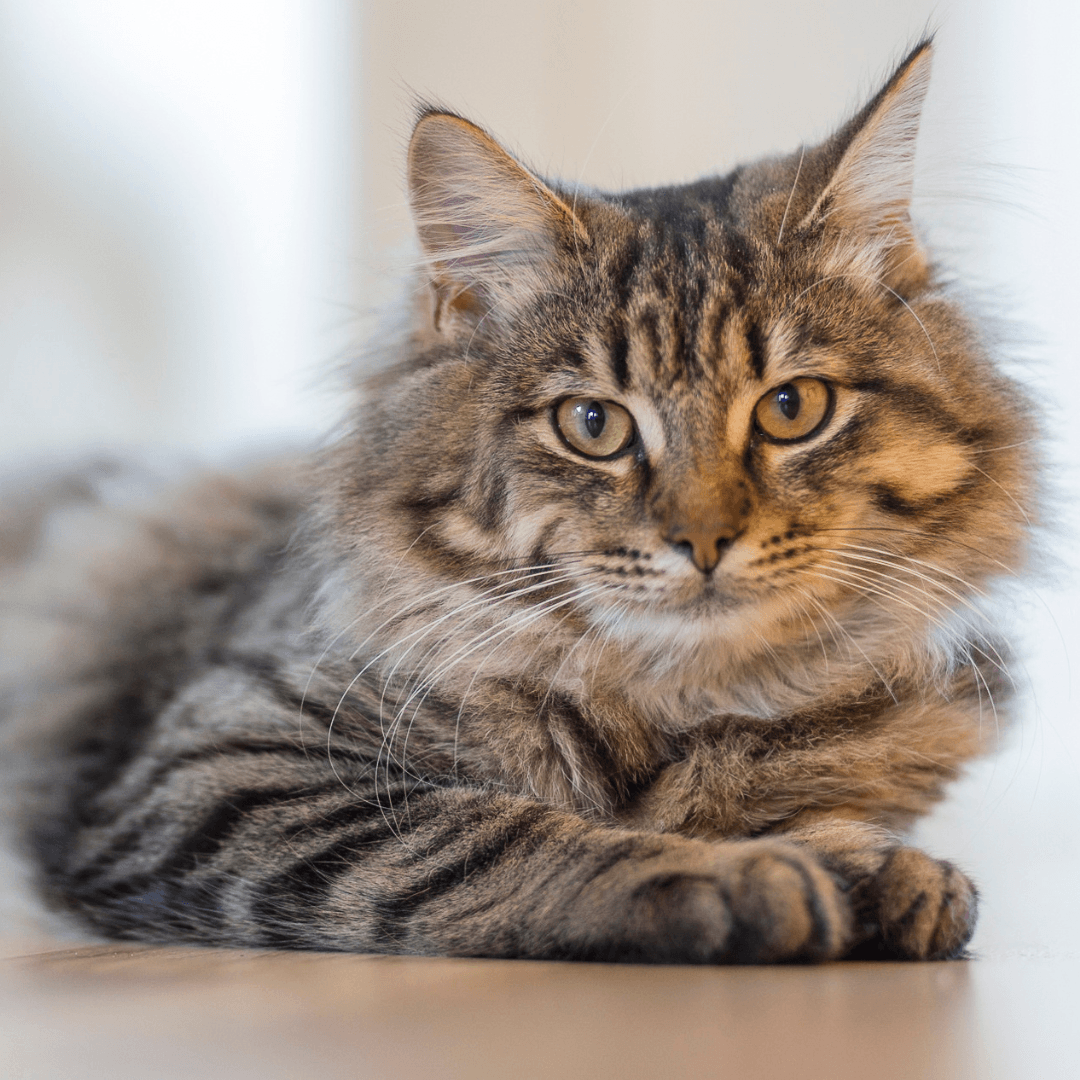
6. Joint Health Support
Joint health support is crucial for senior cats, especially those with arthritis or other joint-related issues.
As cats age, the cartilage in their joints may wear down, leading to discomfort and reduced mobility.
Consider incorporating joint supplements into your cat's diet to address these concerns. Glucosamine and chondroitin are common supplements that can help support joint health and reduce inflammation.
Omega-3 fatty acids, found in fish oil, are also beneficial for joint health and can have anti-inflammatory effects.
Before starting any supplements, it's essential to consult with your veterinarian. They can recommend the appropriate dosage and ensure the supplements won't interact negatively with other medications your cat may take.
In more severe cases of joint pain, your veterinarian may prescribe pain-relief medications to help manage your cat's discomfort.
These medications should only be administered under veterinary guidance, as some pain medications that are safe for humans can be toxic to cats.
Besides supplements and medications, you can adjust at home to support your senior cat's joint health.
Ensure their living space is easily accessible, with ramps or steps to help them reach higher places without straining their joints.
Keep their litter box at ground level to avoid the need for jumping, and provide soft and supportive bedding to ease pressure on their joints while resting.
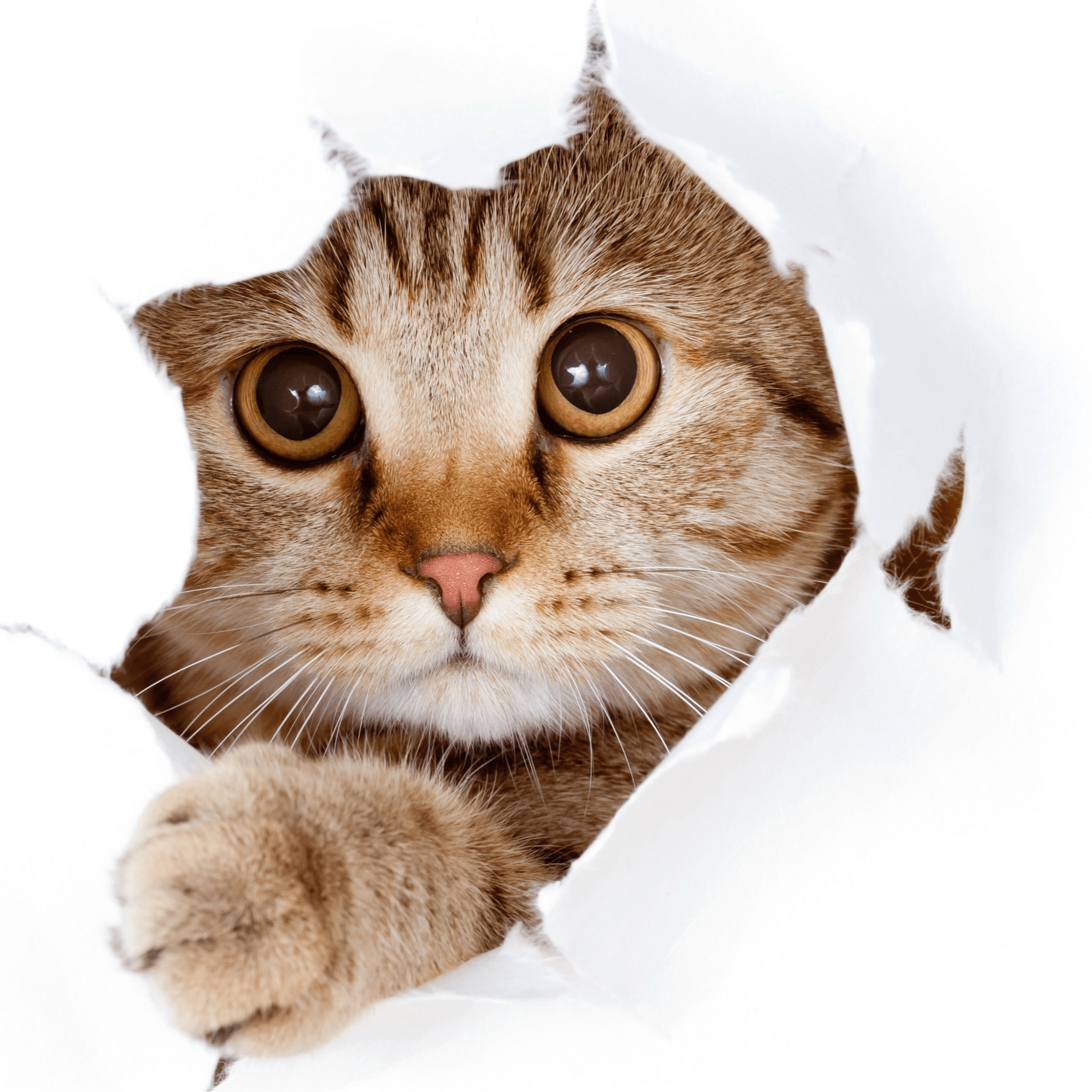
7. Mental And Physical Stimulation
Mental and physical stimulation is essential for your senior cat's overall well-being.
While their activity levels may naturally decrease with age, providing opportunities for mental engagement and light exercise is vital.
Interactive toys, such as puzzle feeders or dispensing treats, can help stimulate your cat's mind and keep them mentally sharp.
These toys encourage problem-solving and prevent boredom, which is crucial for senior cats as they may be more prone to stress and anxiety.
Incorporate gentle playtime into your senior cat's daily routine to promote physical activity. Use easy toys on their joints and muscles, such as feather wands or laser pointers.
Short play sessions can help keep your senior cat limber, and it's also an excellent bonding time between you and your furry friend.
Creating a stimulating environment indoors can also benefit your senior cat. Providing scratching posts, climbing trees, and cat condos can encourage light exercise and allow them to engage in natural behaviours like scratching and climbing.
Consider rotating toys to keep things interesting, as cats can get bored with the same toys over time.
However, being mindful of your senior cat's physical limitations is crucial. Avoid vigorous activities that could strain their joints or cause injury.
Instead, focus on low-impact exercises that won't put too much stress on their aging bodies. Regularly monitor your cat during playtime and adjust the intensity based on their comfort level.
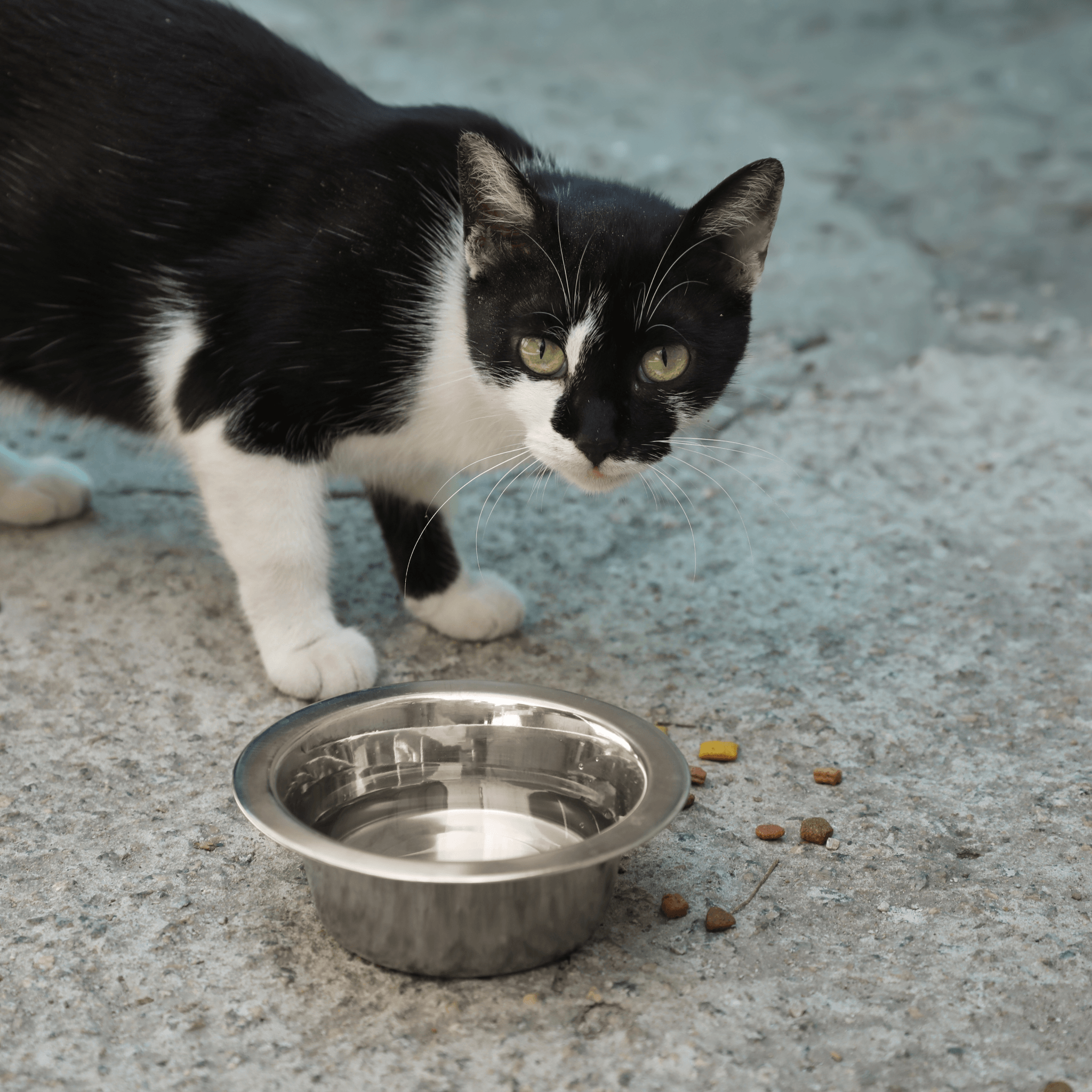
9. Hydration
Hydration is crucial for your senior cat's overall health and well-being. As cats age, they may become more prone to dehydration, leading to various health issues.
Providing access to fresh water at all times is essential to encourage your senior cat to drink regularly.
Consider placing water bowls in multiple locations throughout the house, making it convenient for them to stay hydrated.
Additionally, introducing a water fountain can be an effective way to entice your cat to drink more.
Cats are naturally attracted to running water, and a fountain can mimic the flowing water they might encounter in the wild, making it more appealing to them.
Keep a close eye on your senior cat's water intake, as changes in drinking habits can be a sign of potential health problems.
If you notice a significant decrease in water consumption or any signs of dehydration, such as lethargy, dry mouth, or sunken eyes, consult your veterinarian immediately.
Your vet may recommend additional measures to encourage hydration, such as adding water to your cat's food or providing electrolyte supplements.
It's important to note that certain medical conditions, such as kidney disease, can affect your senior cat's thirst and water intake.
Regular veterinary check-ups can help detect and manage these conditions early, ensuring that your cat receives the necessary care and attention to maintain proper hydration and overall health throughout their senior years.
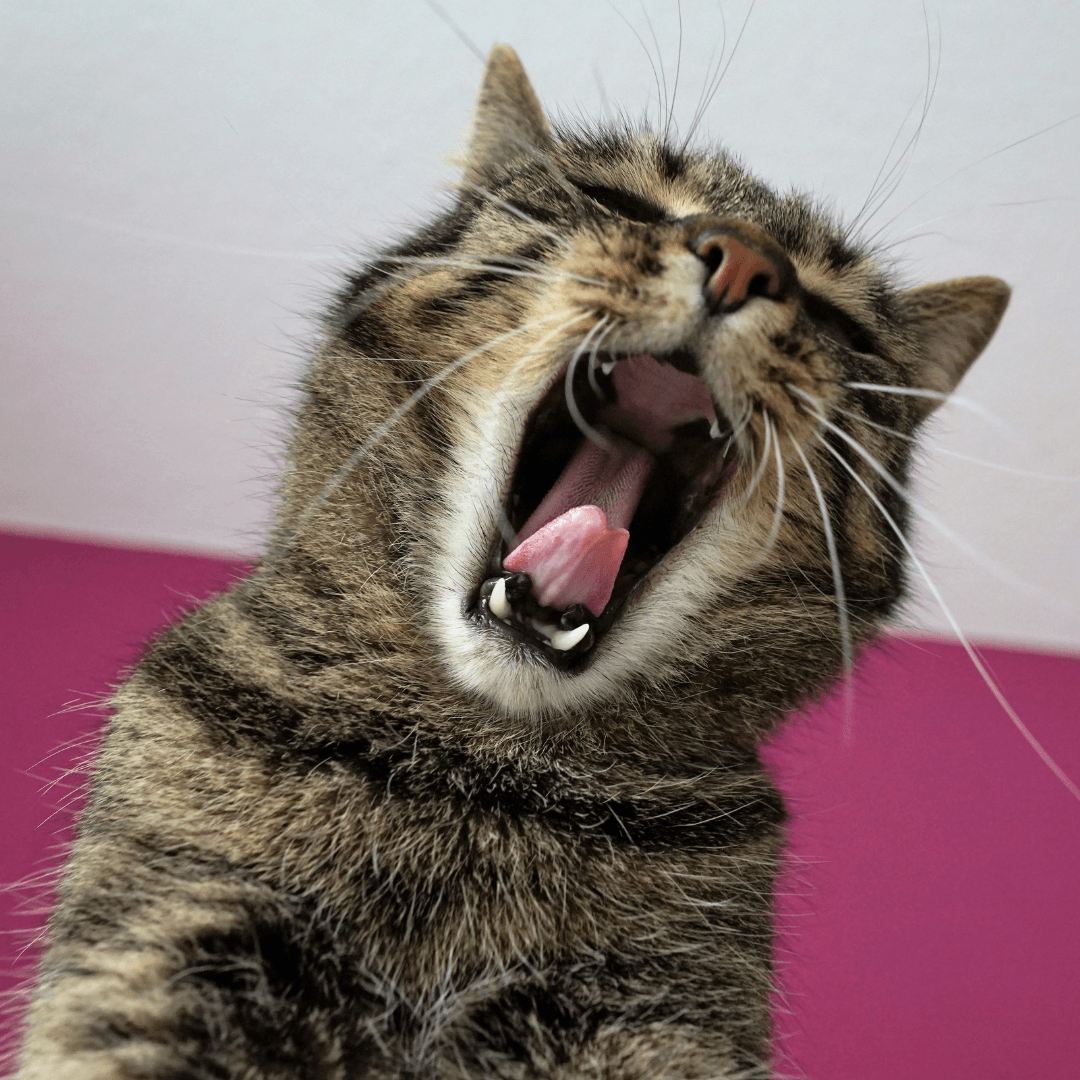
10. Manage Stress
As senior cats age, they may become more sensitive to environmental changes, increasing stress and anxiety.
Managing stress and creating a calm and comfortable living space is essential to ensure their well-being.
One of the most effective ways to reduce stress is by maintaining a consistent daily routine. Senior cats thrive on predictability, so try to feed them, play with them, and provide affection at the same time each day.
Avoid sudden changes in their environment or daily activities, as these can be unsettling for them.
Creating a quiet and peaceful living space is also essential for senior cats. Provide cozy and secluded areas where they can retreat and feel safe when they need alone time.
Limit exposure to loud noises, such as loud music or household appliances, which can be stressful for them.
Introducing new people or pets into the household should be done gradually, with close supervision, to prevent overwhelming your senior cat.
Monitor their reactions to new experiences and adjust accordingly to minimize stress. If you need to change your cat's environment or routine gradually, give them time to adapt.
Finally, consider using pheromone sprays or diffusers designed for cats to create a calming atmosphere. These products release synthetic pheromones that can help reduce cat stress and anxiety.
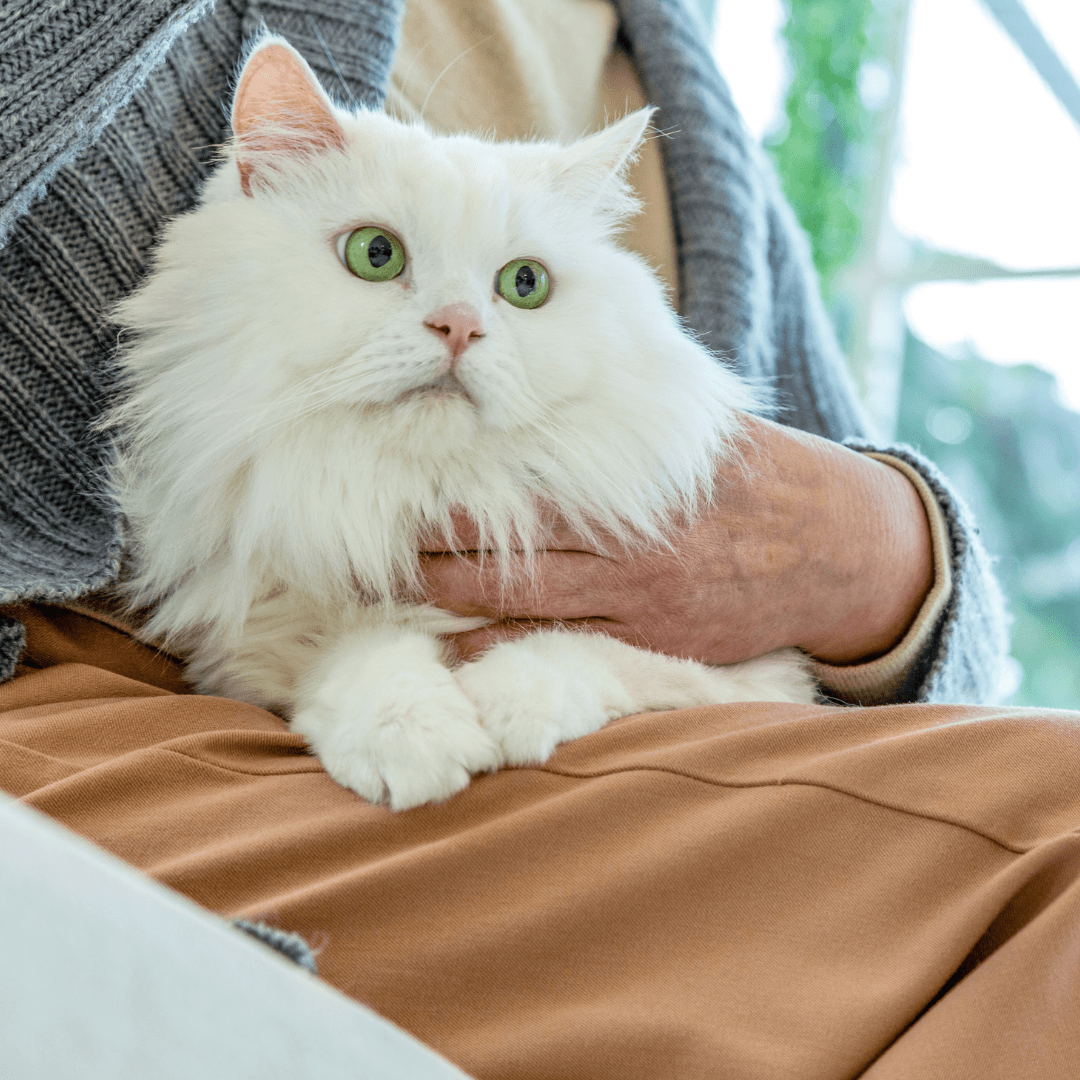
11. Love And Attention
Senior cats may have different needs and health concerns but still crave love and attention from their human companions.
Spending quality time with your senior cat is not only beneficial for their emotional well-being but also strengthens the bond between you both.
Offer gentle affection, such as petting and cuddling, to show them you care. Understand that they may have limitations due to age, so be patient and accommodating as they navigate the challenges of getting older.
Engage in activities your senior cat enjoys, whether playing with their favorite toys or sitting together quietly.
Senior cats may not be as active as they once were, but they still appreciate the companionship and interaction with their human family members.
Be observant of your cat's cues and responses during interactions. While some senior cats may enjoy extended cuddle sessions, others may prefer shorter periods of affection.
Respect their boundaries and give them space when needed. Adapt your interactions to ensure comfort if your senior cat has specific health issues or mobility challenges.
Conclusion
In conclusion, providing proper care for our senior cats is essential to ensure they enjoy a happy, healthy, and fulfilling life during their golden years.
Understanding the unique needs and challenges of aging is crucial in tailoring their care appropriately.
Regular veterinary check-ups, a balanced and age-appropriate diet, weight management, dental care, and joint health support are essential for senior cat care.
By being attentive, compassionate caregivers, we can provide our senior feline friends with the best possible quality of life as they gracefully navigate aging.
Each senior cat is unique, and taking the time to understand their needs allows us to cherish them during their later years.
With proper care and affection, our senior cats can continue enriching our lives and bringing joy to our hearts for many more years.
I trust you enjoyed this article on the Best Senior Cat Care Tips And Advice. Please stay tuned for more blog posts shortly. Take care!
JeannetteZ
>>>Please click here to read my all-inclusive article about the Best Cat Care Tips For Beginners<<<
>>>Please click here to read more about cats on Wikipedia<<<
Your Opinion Is Important To Me
Do you have thoughts, ideas, or questions? I would love to hear from you. Please leave your questions, experiences, and remarks about the Best Senior Cat Care Tips And Advice in the comments below. You can also email me at Jeannette@Close-To-Nature.org.
Disclosure
This post may contain affiliate links. As an Amazon Associate and other affiliate programs, I earn from qualifying purchases at no extra cost to you. Please read my full affiliate disclosure.
You might also enjoy these blog posts:
Best Tips For Maintaining A Healthy Coat In Horses
Best Hoof Dressing Tips For Horses

